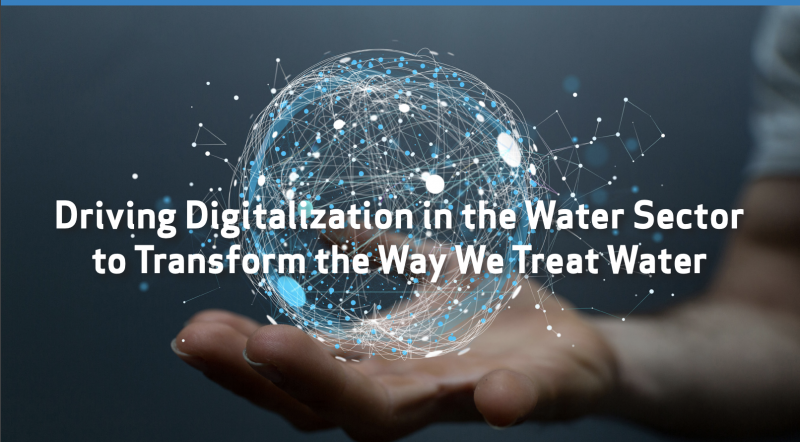Driving Digitalization in the Water Sector to Transform the Way We Treat Water
Published on by Water Network Research, Official research team of The Water Network in Case Studies
At the Forefront of Digitalization

As a relative newcomer to the water treatment industry, unfettered by legacy technologies,
Aqua Metrology Systems (AMS) is focused on bringing about a paradigm shift in the way we treat
water with the goal of widening access to safe drinking water and reducing the industry’s impact on
the environment, whether from its effluent discharges or the greenhouse gases (GHGs) it generates.
AMS enters 2023 with an expanding and diverse industrial and municipal client base in the U.S.,
Europe and Asia, a highly competitive portfolio of advanced water treatment technologies, and
several significant achievements in 2022 that position it for a broad-based and robust growth of its
AMS Analytics and AMS Environment divisions in 2023 and beyond.
Encouragingly, this progress has taken place at a time when the global water industry is beginning to recognize its responsibility for a significant share of global GHG emissions and the actions that need to be taken to reduce this.
Digitalization of the water industry and the broad adoption of real-time, high-density data and predictive analytics into water and wastewater operations are essential components for bringing about meaningful change and a significant reduction in GHGs.
For the past 12 years, AMS Analytics has been at the forefront of the digitalization of the water sector by providing its clients with online, accurate and dependable water quality data. We have maintained an unremitting focus on ensuring the reliability and availability of data through continuous remote monitoring of the condition of our global analyzer network and the support provided by our field-based service network. Our real-time analytical solutions enable clients to optimize water treatment processes and reduce the use of chemicals and energy while meeting ever-wider and more stringent water quality regulations for
drinking water and wastewater discharges. In the case of large industrial water users, real-time water quality data enables them to significantly reduce their net water use by controlling the performance of their water reuse systems and managing corrosion of heating and cooling systems more effectively.
Media
Taxonomy
- Digital Manufacturing
- Digital Twins